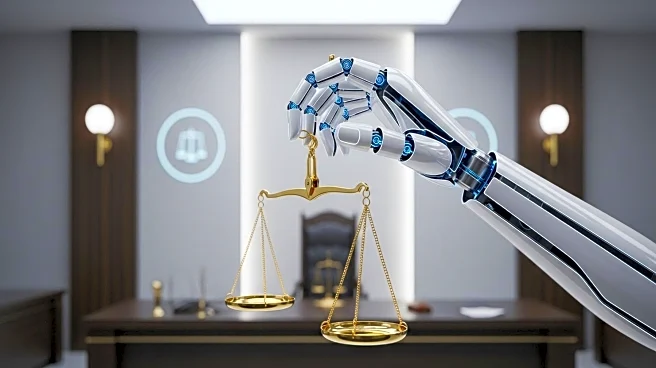What is the story about?
What's Happening?
The legal industry is currently grappling with the integration of generative AI (Gen AI) technologies. Despite the widespread discussion and promotion of AI as a transformative tool, many general counsel and law firm attorneys are encountering practical challenges. These include dealing with disorganized data, outdated workflows, and entrenched cultural norms that hinder the effective adoption of AI. While AI is seen as a catalyst for change, its implementation in the legal sector remains in the early stages, with many professionals still adjusting to its potential benefits and limitations.
Why It's Important?
The integration of AI in the legal industry is significant as it promises to enhance efficiency and streamline operations. However, the current challenges highlight the gap between technological potential and practical application. If successfully implemented, AI could revolutionize legal services by automating routine tasks, improving data management, and enabling more strategic decision-making. This could lead to cost savings and increased competitiveness for law firms. Conversely, failure to adapt could result in missed opportunities and continued inefficiencies, impacting the industry's ability to meet client demands and stay ahead in a rapidly evolving market.
What's Next?
As the legal industry continues to explore AI technologies, stakeholders are likely to focus on overcoming existing barriers. This may involve investing in training and development to better understand AI capabilities, as well as re-evaluating workflows to accommodate new technologies. Conferences and executive roundtables will likely continue to address these issues, providing platforms for sharing insights and strategies. Law firms may also seek partnerships with tech vendors to tailor AI solutions to their specific needs, aiming to bridge the gap between promise and practice.
Beyond the Headlines
The adoption of AI in the legal industry raises ethical and cultural questions. There is a need to balance technological advancement with the preservation of professional standards and client confidentiality. Additionally, the shift towards AI-driven processes may require a cultural change within firms, challenging traditional practices and roles. Long-term, this could lead to a redefinition of legal work, with AI handling routine tasks and lawyers focusing on complex, strategic issues.














